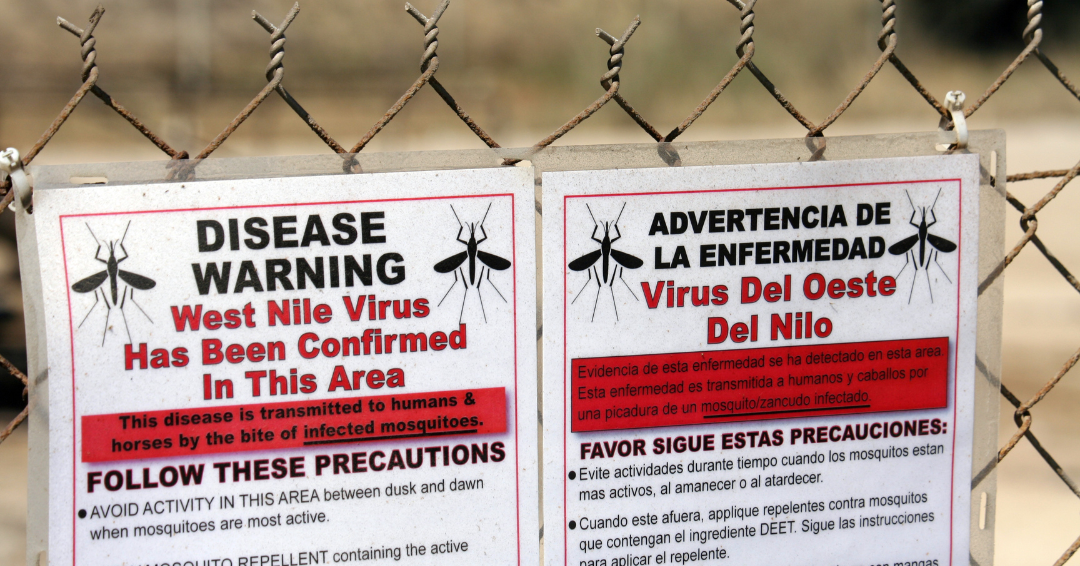
Laura Mahecha
Director, Agrochemicals
With some mosquito-borne diseases increasing in the United States, Kline kicks off its latest vector control study with nationwide survey of MADs.
Driven by a variety of factors including pesticide resistance, increased global travel, climate change, and urbanization, some mosquito-borne diseases are increasing in the United States. Key contributing factors include warmer temperatures, milder winters, and longer mosquito seasons that create ideal conditions for mosquito breeding and virus transmission. Increased rainfall also provides more mosquito breeding sites. The CDC and local health departments are enhancing surveillance and mosquito control, but challenges remain due to sporadic outbreaks and limited or no vaccines, such as the lack of vaccines to prevent West Nile virus in humans. Preventive measures such as repellents, mosquito control programs, and public education are critical to limit the spread of the diseases shown below.
West Nile Virus: As of September 3, 2024, the CDC reported 377 cases across 38 states, with 195 neuroinvasive cases and 18 deaths. Texas and the Southeast, particularly Louisiana and Mississippi, have been rather hit hard. In 2025, the first confirmed West Nile case was reported in Dallas County, indicating continued activity. Warmer temperatures and milder winters are boosting mosquito populations and virus replication, increasing transmission risk.
Dengue: The CDC reported 9,255 total dengue cases in 2024 across 53 U.S. jurisdictions, with local transmission in California, Florida, and Texas. Outbreaks in Puerto Rico and the U.S. Virgin Islands, which continued into 2025, have raised concerns linked to small outbreaks in the continental U.S. due to infected travelers. The United States is seeing a rise in locally acquired cases, including 15 in Southern California and 35 in Florida.
Eastern Equine Encephalitis (EEE): In 2024, EEE cases reached a five-year high with 19 confirmed cases, the third highest since 2005, primarily in Northeast, Mid-Atlantic, and Gulf Coast states. Six cases were reported across five states by September 3, 2024, with one death. The high mortality rate of approximately 30% underscores its severity, and cases are appearing further north, likely due to climate-driven mosquito range expansion.
Malaria: Locally acquired malaria cases, which are rare in the United States, reemerged in 2023, with nine cases in Florida, Texas, and Maryland, the first since 2003. While most malaria cases are travel-related, the 2023 local cases signaled a potential resurgence, particularly in southern states, driven by warmer, wetter conditions.
Other Diseases: Chikungunya, Zika, and emerging threats such as Jamestown Canyon virus are also ongoing concerns. There have been nearly 5,000 chikungunya cases reported in China, which prompted U.S. travel warnings. In the United States, there are noted rising Jamestown Canyon cases linked to climate-driven mosquito expansion. While Zika cases have declined (only four in the United States in 2020), local transmission of chikungunya and Zika remains a risk in southern states.
Vector control is the crucial mission of local public health agencies and mosquito abatement districts. Kline’s research team will be conducting a detailed survey of mosquito abatement districts across the United States to understand key questions on product usage, methods of application, usage of larvicides versus adulticides versus barrier treatments, and resistance issues. In addition to standard questions, some new topics to be surveyed include control of ticks, black flies, and midges; common citizen complaints; alternative application methods, such as drones and helicopters; equipment utilized such as traps and ultralow-volume (ULV) sprayers; and incidence of disease.
Mosquito Control: U.S. Market Analysis and Opportunities will be published in Q4 2025 and will contain value and volume estimates by product, supplier, active ingredient, and product type for hundreds of mosquito pesticide products. To learn more about how this research can inform your pesticide strategy, contact us.

